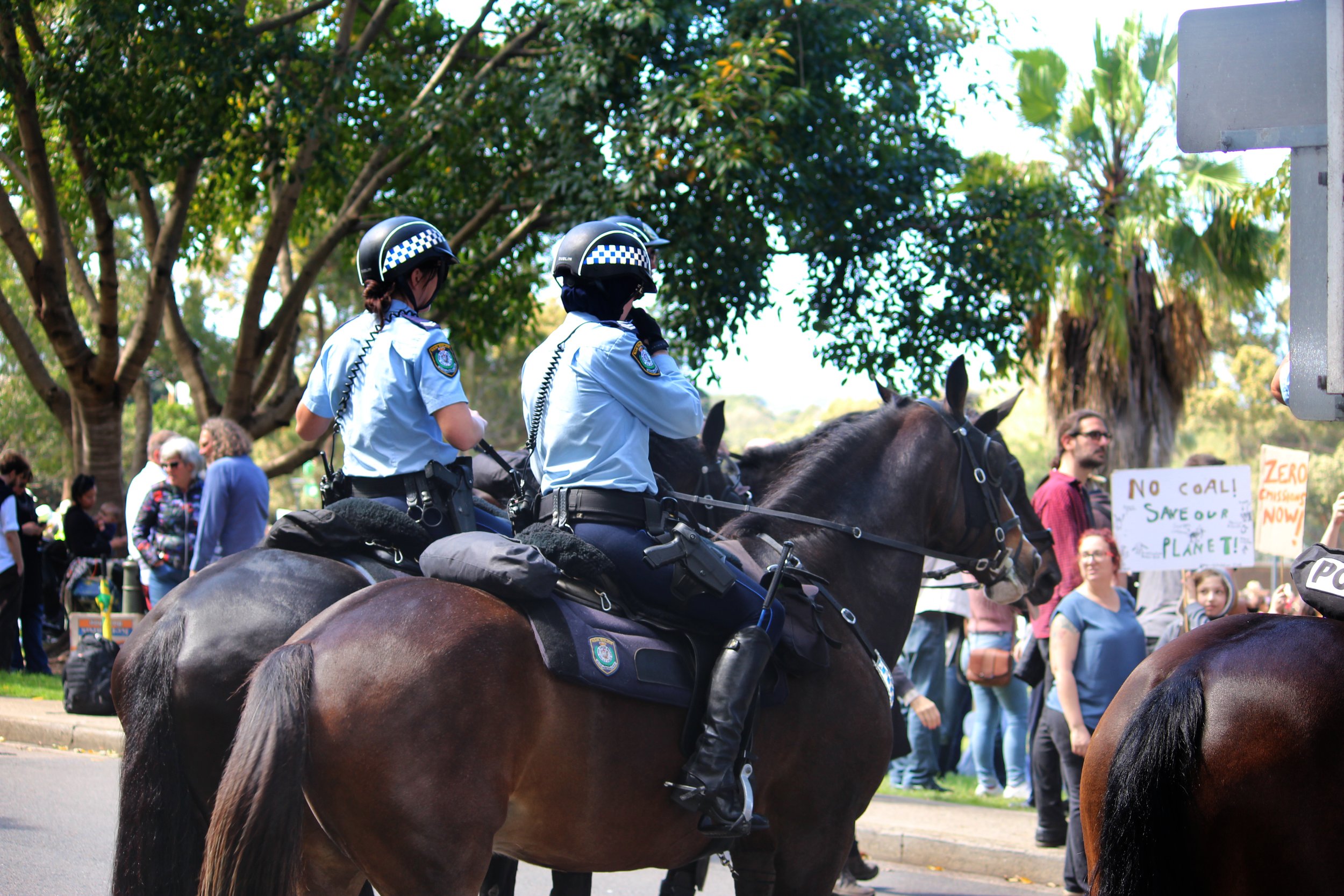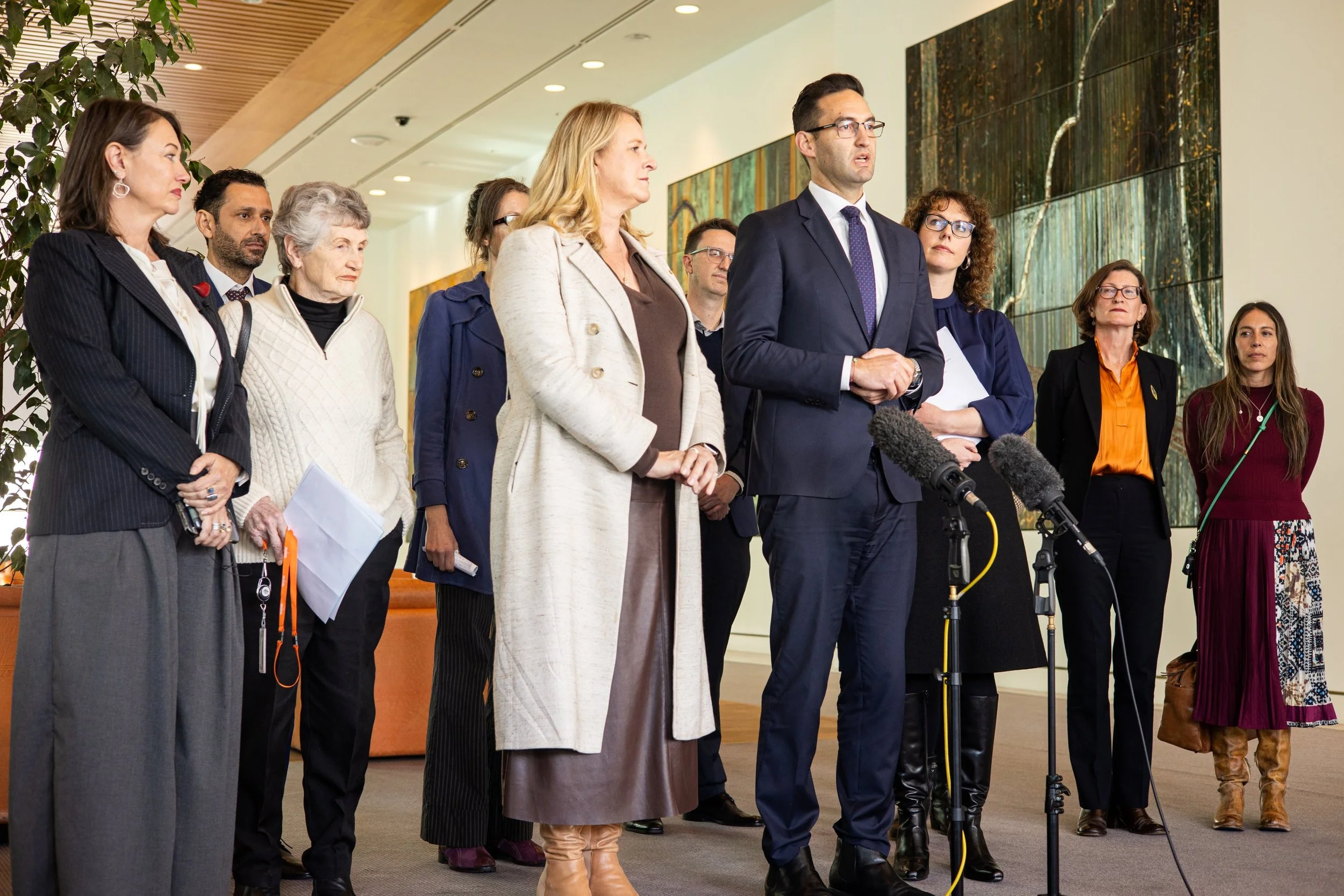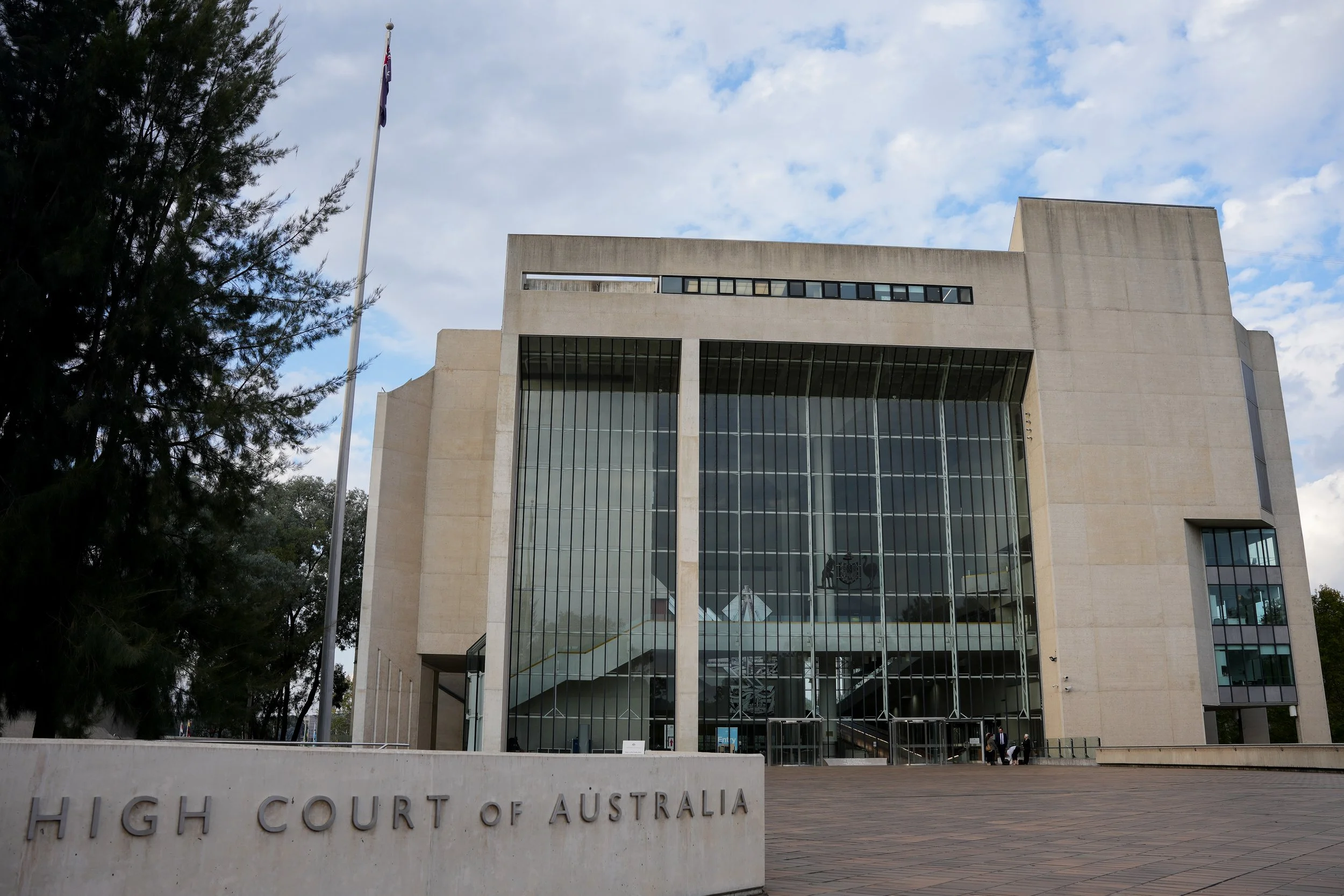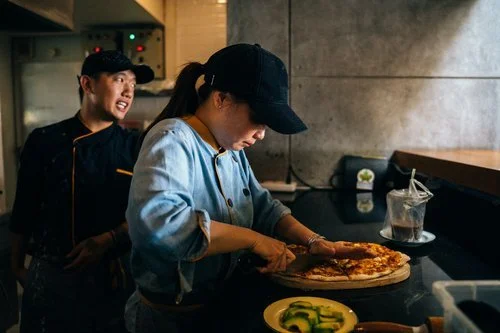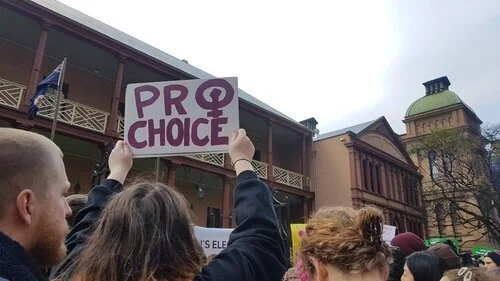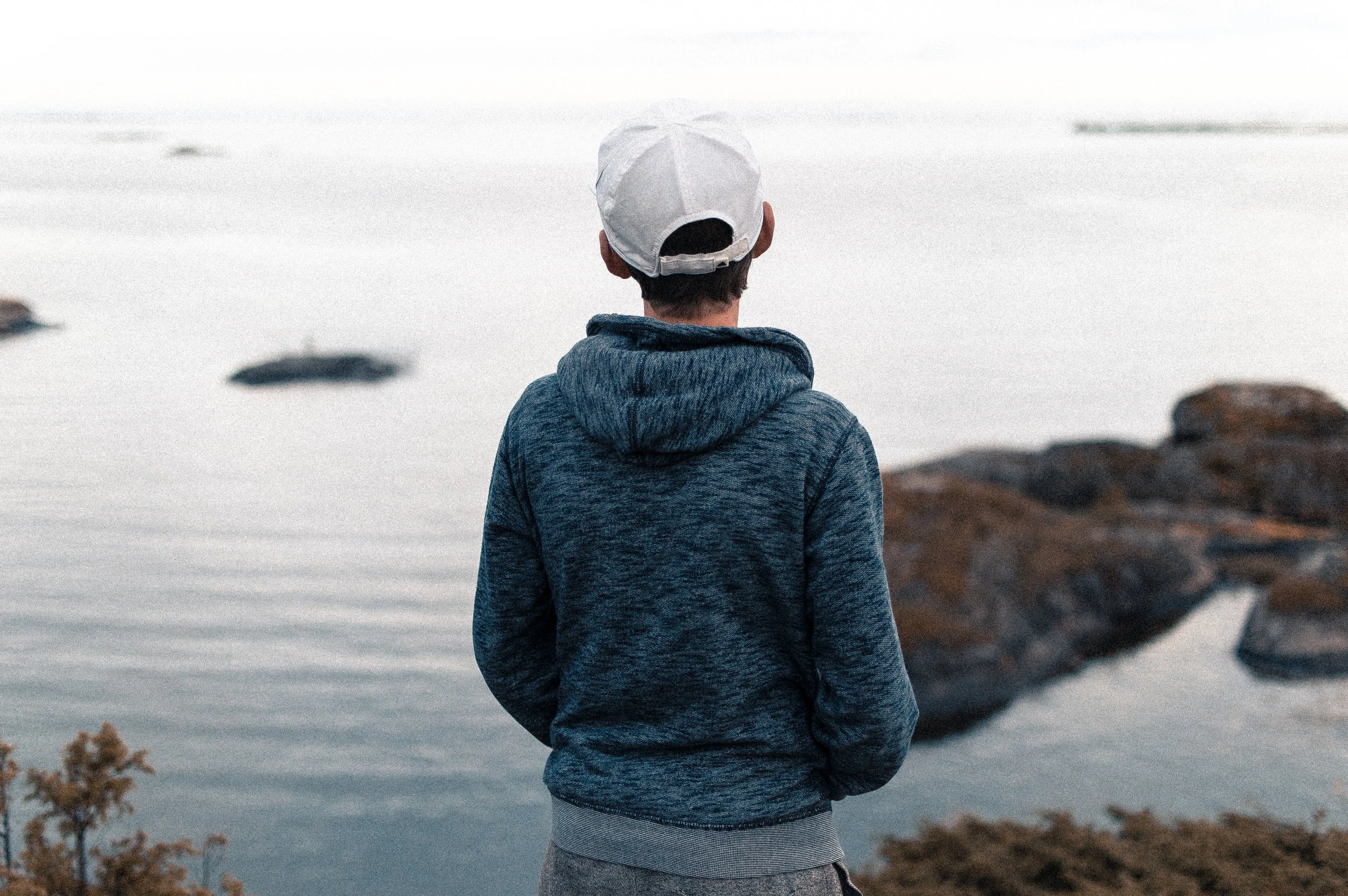The laws, if passed, would have wide-ranging implications for the right to peaceful assembly and may lead to the criminalisation of conduct which does not impact on the rights of people to practice their religion and be protected from racial or religious hatred.
Read MoreThe Queensland Crisafulli Government’s latest legislation, the Making Queensland Safer Act 2024 (Act), substantially changes how children are treated by Queensland’s police, courts and prisons, including by making prison sentences significantly longer. The Queensland Government concedes that the changes are ‘more punitive than necessary to achieve community safety’ and ‘in direct conflict with international law standards’. ¹
Read MoreA legal explainer of the Migration Amendment (Removal and Other Measures) Bill 2024 , with a brief analysis of its operation. The Bill permits the Minister to direct certain people to take steps to facilitate their removal from Australia. It also prohibits nationals from certain countries from making a valid application for any visa to come to Australia.
Read MoreThe Human Rights Law Centre’s explainer on the Albanese Government’s laws to give the Minister sweeping powers to ban almost any item, including everyday items like mobile phones, and give officers virtually unchecked powers to conduct searches with no basis.
Read MoreThe Human Rights Law Centre’s explainer on the Albanese Government’s brutal laws to deport and punish refugees and people seeking asylum after the High Court of Australia ruled that ankle bracelets and curfews were punitive and unconstitiutional for people who were released from indefinite immigration detention.
Read MoreThe High Court handed down its decision in YBFZ v Minister for Immigration, Citizenship and Multicultural Affairs [2024] HCA 40 determining by majority that the Albanese Government’s imposition of punitive visa conditions is unconstitutional.
Read MoreThis explainer was created by the Human Rights Law Centre, WestJustice, and the Asylum Seeker Resource Centre to help you know your rights when interacting with the Australian Border Force.
Read MoreThe Parliamentary Joint Committee of Human Rights inquiry has recommended the Albanese Government should legislate an Australian Human Rights Act. Read the Human Rights Law Centre’s explainer of of the final report here.
Read MoreAn explainer by the Human Rights Law Centre on the High Court’s decision in ASF17 v Commonwealth [2024] dismissing the appeal brought by ASF17 seeking his release from immigration detention.
Read MoreThe Migration Justice team have analysed the Albanese Government’s new preventive detention regime. Here is their analysis and explainer of the updated Migration Act.
Read MoreThis explainer responds to FAQs relating to the High Court’s judgment of NZYQ and what is likely to come next. It is not intended as legal advice.
Read MoreThe Bill amends the Migration Act 1958 (Cth) (the Act) and the Migration Regulations 1994 (Cth) to introduce a new regime for Subclass 070 (Bridging (Removal Pending)) visas (BVR).
Read MoreWe want a future where everyone has equal access to healthcare. The inclusion of a ban on sex selective abortion in the Abortion Legislation Reform Bill 2023 (the Bill) will have harmful and discriminatory impacts on the health of women, while doing nothing to address the structural issues which cause gender discrimination.
Read MoreMigrant worker exploitation is happening because of the structural inequalities built into the migration system. Irrespective of visa categories or status, there must be visa security for all.
Read MoreSA’s proposed anti-protest laws in the Summary Offences (obstruction of Public Places) Amendment 2023 will undermine the ability of everyone in South Australia to exercise their right to peacefully protest.
Read MoreWith the COVID-19 pandemic continuing and Victoria’s current state of emergency set to expire, Victoria is developing a new pandemic law to support the ongoing management of COVID-19 and any future pandemics.
Read MoreWith the next federal election not far away, charities and community groups are thinking about what advocacy they want to do. Under Commonwealth electoral laws, some advocacy spending and donations may need to be publicly disclosed, and your organisation may need to consider adjustments in how you use or track donations. This guide is designed to step you through your obligations under these laws.
Read MoreThe COVID-19 pandemic is a global human rights crisis which has caused widespread illness and millions of deaths and prompted often severe restrictions from governments to protect public health.
Read MoreThe COVID-19 pandemic has required governments around the world to make difficult and high-stakes decisions. Most states across Australia have declared a state of emergency, giving governments and health officials broad powers to limit individual rights and freedoms in order to protect public health.
Read MorePeople are innocent until proven guilty, and bail means that the police can release a person from custody on the promise that they will go to court at a later date to face the charges alleged against them. If a person applies for bail and that application is denied, they are detained in prison until their court date.
Read MoreThe Government’s proposed new Governance Standard 3 could see charities shut down for speaking out.
Read MoreOur ability to come together and speak out on the issues we care about is fundamental to our democracy.
Read MoreRoutine strip searching involves forcing children as young as ten to remove their clothing in front of adult prison guards on a regular basis.
Read MoreEveryone deserves to be safe in the face of COVID-19, but immigration detention facilities in Australia are creating unacceptable health risks.
Read MoreSolitary confinement is a cruel practice that causes irreparable harm to the people who are subjected to this form of physical and sensory isolation. Governments must ban the archaic and inhumane use of solitary confinement in Australian prisons.
Read MoreAustralia and the world face a public health emergency in coronavirus (COVID-19), but little has been said about the people in our prisons and youth detention centres.
Read MoreIn response to the COVID-19 public health emergency, most states across Australia declared a state of emergency and brought in new laws imposing severe restrictions on civil liberties and an increase in policing powers.
Read MoreThe Victorian Government is requiring people in Melbourne and the Mitchell Shire to wear a face covering or mask when leaving their home to help stop the spread of COVID-19. This explainer seeks to debunk claims that the requirement breaches people’s human rights.
Read MoreSilent prayer outside abortion clinics can be particularly harmful to women trying to access healthcare. The objects of the Health Care (Safe Access) Amendment Bill 2020 (SA) (‘the Bill’) would be completely undermined by an amendment that authorises silent prayer within a health access zone, by allowing anti-abortion activists to invade the privacy and threaten the wellbeing of patients seeking abortion care.
Read MoreWhile politicians say that police are committed to taking a "sensible approach", history has shown that too often marginalised groups are disproportionately punished through an expansion of policing powers. In particular, people living with a disability, women escaping family violence and those experiencing homelessness may be hardest hit. In addition, increased powers - and police discretion - open the way for racialised and discriminatory policing, too often experienced by Aboriginal and Torres Strait Islander people.
Read MoreThe Human Rights Law Centre works with international NGOs to highlight the human rights challenges presented by COVID-19 globally and to ensure that UN human rights mechanisms, such as Human Rights Council and Special Procedures, can support countries like Australia in implementing human rights based responses to COVID-19, and hold them to account when they fail to do so.
Read MoreFor over two years, safe access zone laws in Victoria have prevented harm to women seeking abortion care and staff providing those services. During this time, one woman, Ms Clubb, was charged and convicted with engaging in prohibited behaviour in a zone. The HRLC has been granted permission from the High Court to provide submissions as “a friend of the court”.
Read MoreAcross Australia the age of criminal responsibility is set at 10 years. The age of criminal responsibility is the age a child is considered capable of understanding they have done something wrong and can be dealt with in the criminal justice system. All Australian Governments should raise the age of criminal responsibility because it is the right thing to do, because it is evidence-based, and because the recommendations of the NT Royal Commission present a rare opportunity to embrace this change.
Read MoreIn December 2017, the Government introduced the Electoral Legislation Amendment (Electoral Funding and Disclosure Reform) Bill into Parliament. The Bill imposes financial controls and compliance measures on organisations and individuals in Australia that incur expenditure to contribute to public debate on policy or government issues.
Read MoreAustralian Governments must prohibit the solitary confinement of children in detention and closely regulate practices that can result in the forced isolation or segregation of a child. So what is solitary confinement?
Read MoreIn August 2017, Senator Dean Smith publicly released the Marriage Amendment (Definition and Religious Freedoms) Bill 2017. Find out what the Bill means for marriage equality in Australia.
Read MoreThe postal survey on marriage equality is now underway. New laws have been put in place to try to ensure respectful debate. Here's what you need to know about how they impact on you.
Read MoreCurrently transgender young people can only access cross sex hormones (Stage 2 treatment) for ‘gender dysphoria’ if they have approval from the Family Court.
Read More

